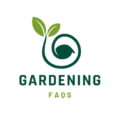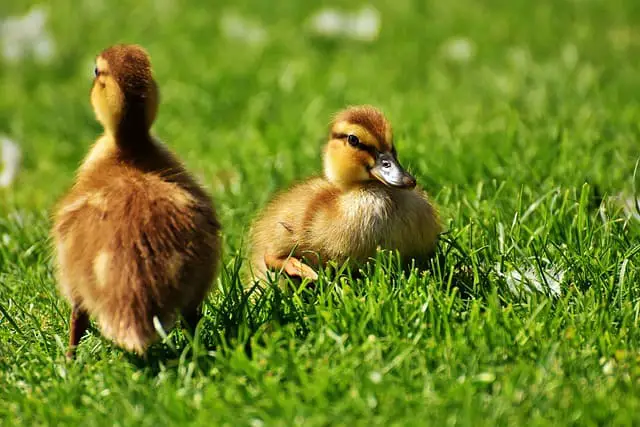Ducks are probably one of the world’s favorite feathered companions. They are friendly, affectionate, and can even be a fine defense against pests in your garden. Naturally, you’ll want to feed them to encourage them to stick around, begging the question: Do ducks eat worms?
Yes! Ducks love all kinds of worms and will even eat thawed-out frozen ones if you have some handy. Soldier worms, bloodworms, earthworms, and mealworms are popular choices when it comes to giving your ducks a delicious, wriggly snack. Ducks are omnivores and will happily snack on a variety of aquatic insects, larvae, and invertebrates, so worms provide a great supplement to their natural diet.
Today we’re going to explore this subject in a little more detail, so that you’ll have a better idea which worms are best, the duck’s natural diet, favorite foods for these waterfowl, and even some garden considerations if you feel like some ducky pest-control.
Without further ado, let’s talk about ducks, worms, and what you need to know about them both!
Do pet ducks eat worms?
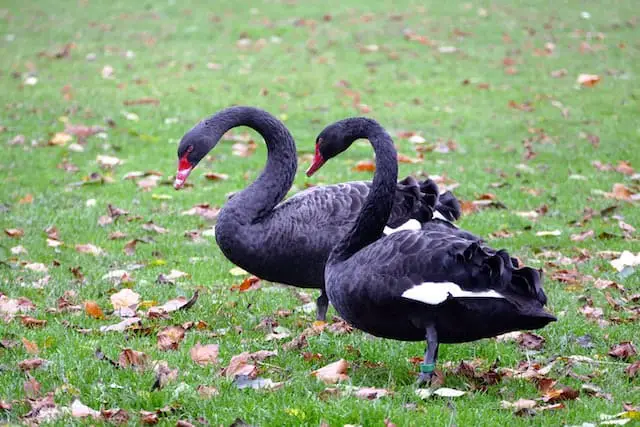
Yes, pet ducks will happily devour worms and a number of other soft and even crunchy insects. As far as the worms go, they like mealworms, earthworms, bloodworm, soldier worms, and nightcrawlers (just to name a few).
These wriggly snacks are protein-packed and quite good for your ducks, but if the ducks have made a surprise visit and you aren’t prepared, then a good alternate protein source would be any cooked, unspiced meats that you have around and if you like to eat shrimp, then save those shells – ducks absolutely love them!
Do ducks eat worms naturally?
Yes, worms are a favorite snack for ducks and they will seek them out readily If you are lucky enough, you’ll catch a duck or two in the middle of hunting for worms, and rather than digging a hole with their clawed, webbed feet, the ducks will instead make tiny burrows in the earth with their bills.
With a little luck and patience, this tactic pays off, and you’ll see a squirming worm that will disappear in a flash down into the hungry duck’s bill.
Worms aren’t their only protein source, of course, and these friendly waterfowl will also grab-up minnows, crickets, slugs, and the occasional snail, but they will also root-out and gobble up plant materials to supplement their diets.
They prefer soft, young plants that are just starting to sprout, although they will nibble on larger plants from time to time if they are edible and the duck is still feeling puckish.
Are worms a pet duck’s favorite food?
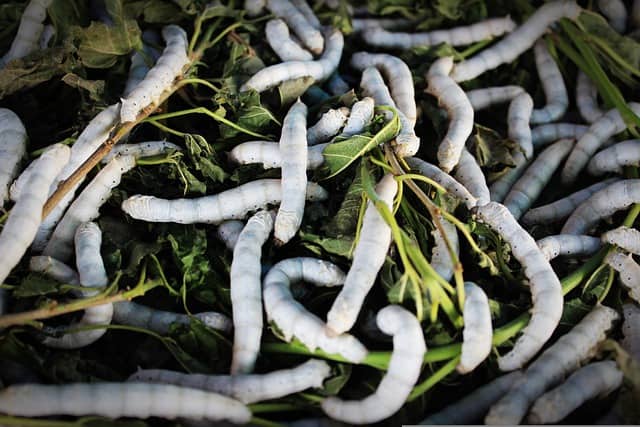
While worms are A favorite of ducks, they are not necessarily a duck’s absolute favorite food. Many owners agree, that this title would actually go to scrambled eggs. While it seems odd to feed eggs to birds, ducks can’t seem to get enough of this human breakfast favorite.
With adult ducks, it is recommended that you save the shells and you can break them up and serve them along in the scramble, and make sure that you don’t use butter or any spices in your duck’s eggs.
For ducklings, leave those eggshells completely OUT of the mix – the crunchy shells are very hard for the little ones to eat in the first place and the eggshells are not good for them. This is because the shells contain large amounts of calcium and this may interfere with organ growth and development in ducklings.
While ducks seem to love a good scramble the most, we should also mention that they will definitely not turn their bills up at hardboiled eggs, preferably sliced into neat little sections.
This makes egg-gobbling much easier and also gives the rest of the ducks a chance to get a little bit of egg, if one of your ducks is a bit of a bully.
Will worm-hunting ducks eat the plants in my garden?
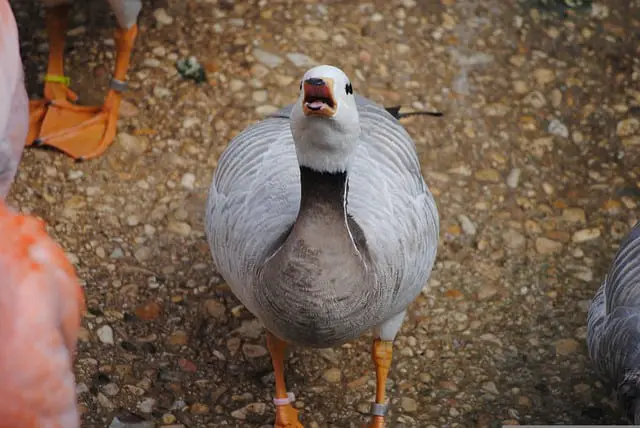
This is definitely a possibility, although there are certainly things that you can do to help minimize damage. The British Waterfowl society has some useful suggestions for this, with one of the most practical being a condition that you likely already have in place – lots of grass.
Grass helps to provide quick and easy snacking for ducks and as it grows quickly, it’s not going to affect the aesthetics of the yard. They also recommend planting sedges strategically, in order to help protect some of the smaller, ornamental plants in your garden.
A protection protocol for your seedlings is also an excellent idea, as ducks tend to go for softer plants when it comes to their snacking habits. By installing piecemeal-patches of mesh netting, you can protect seedlings until they can grow up enough to have a little more of a natural defense against a hungry, curious duck.
Finally, the easiest and probably the most rewarding way to protect your garden is to simply feed your ducks daily!
A duck that is full is going to be much less likely to nibble at the foliage, and you can get more mileage out of duck feed by adding in treats like sliced, hard boiled eggs, freeze dried mealworms, and favored veggies such as tomatoes.
With full bellies, your plants will be much safer, and wherever you go into the yard your ducks will likely come running up to greet you and check for treats, and there’s nothing quite like that feeling!
More on this category: Do Deer Eat Lettuce?
Final Thoughts
The polls are in – worms are definitely welcomed
Do ducks eat worms? You betcha! Worms are a natural part of a duck’s diet and they will eat just about any kind of feeder worms that you are willing to provide them.
You can purchase these at your local pet store and if you are lucky enough to live by a lake, bait worms are also available and even big, juicy nightcrawlers.
Just don’t forget to diversify their diet a little, or providing the worms can definitely take a hit on your wallet. Commercial duck feed has the nutrients that duck’s need and you can ‘mix things up’ with additions such as tomatoes, hard boiled or scrambled eggs, and yes – some delicious worms that they’re sure to appreciate.
If you have a garden, don’t forget a little mesh netting for protecting newly sprouting-seedlings and before you know it, your backyard and beautiful garden will have a happy, quacky, and completely natural pest-removal option that will be the envy of the block!
Frequently Asked Questions
Are earthworms good for ducks?
Yes! Earthworms, mealworms, bloodworms – all of these worms are considered to be tasty for ducks and even if you weren’t providing them, ducks will look for them on their own.
Worms are an excellent source of protein, but if you are feeding pet ducks then just remember to add a little variety to their menu – worms should only take up a small portion of their overall diet.
Are Nightcrawlers good for ducks?
Yes, ducks love nightcrawlers and the large, juicy worms are actually quite good for them. That said, you can certainly expand their diet with some non-wriggly options, with duck favorites including tomatoes, cracked corn, and hard-boiled eggs (which are, oddly enough, a huge hit with these wide-billed birds).
As far as those worms go, however, you may provide fresh or even frozen – ducks aren’t very picky about their worms, provided that they were frozen while still alive and fresh.
Do pet ducks need worming?
Ducks do need worming from time to time, although the good news is that they don’t need it as much as geese or chickens might. A good rule of thumb if you have one (or especially more) ducks is to worm them every 6 months, by means of a deworming medicine called Flubendazole.
If you just have 1 or 2 ducks, then you can probably get away with doing this twice a year, in the spring and autumn, but if you have more than 2 ducks then it’s really best to play it safe and deworm them once every 3 months.
This is important – ducks love eating worms but unfortunately, certain types of worms will ‘eat’ them right back, and a regular deworming regimen is your best defense against one of your ducks getting worms and spreading it to the rest of the ‘raft’.

Hey, I’m Lisa and I’ve been an avid gardener for over 30 years. I love writing, talking and living in the garden! Feel free to connect with me on my socials below
